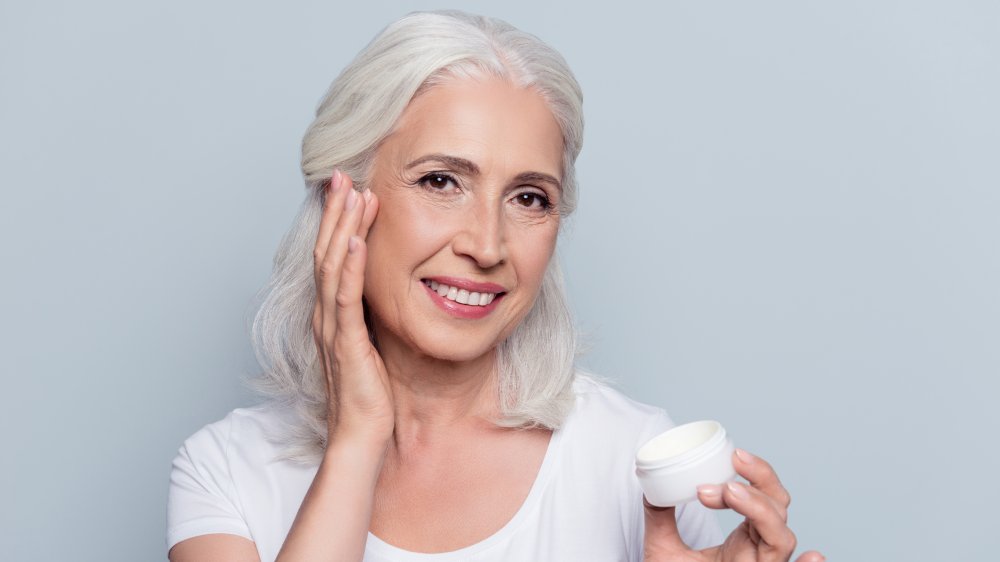This Is What Salicylic Acid Actually Does To Your Skin
Salicylic acid, a beta hydroxy acid derived from willow bark (via Allure), may be best known as a topical acne treatment, but it can also be found as an ingredient in products meant for aging skin. How could this be? How does salicylic acid fight both pimples and wrinkles? Isn't that kind of a conflict of interest? Is salicylic acid trying to help your face get past that awkward, zitty teenage stage, or is it trying to turn back the clock to a time when impermanent pimples weren't nearly as big a problem as fine — and not so fine — lines?
The secret behind salicylic acid's dual identity lies in its ability to penetrate deep down into the pores of the skin. This helps it to clean out all of the junk that may be clogging up the pores, and leads to healthier, better-looking skin at any age or stage.
How salicylic acid fights pimples
Salicylic acid sinks deep down into the skin, where it is able to dissolve pore-clogging skin debris. It is thought that this debris, made from old skin cells, is one of the causes of acne. The dead skin cells should in a healthy skin renewal cycle just slough off, but when they do not do so and instead stick around clogging the pores and creating pimples, salicylic acid gets right down in there and loosens up the junk cells so they can be rinsed down the sink next time you wash your face.
Dr. Naissan O. Wesley explained to Allure that salicylic acid "dissolves skin debris that clogs pores, [acts] as an anti-inflammatory, and also helps red inflamed pimples and pustules go away faster." But dermatologist Rachel Nazarian does have one caveat: While salicylic acid is very effective against blackheads and whiteheads, it is somewhat less effective against cystic (red) acne.
How salicylic acid fights wrinkles
When salicylic acid penetrates the skin and cleans out those old, dead skin cells, this also helps to exfoliate the skin. This will have the effect of softening and also brightening the skin as new layers are exposed. As a wrinkle-fighter, though, beta-hydroxy salicylic acid is best combined with alpha-hydroxy ingredients like glycolic or fruit acids.
BHAs do their work on the sub-dermal level, "creating microscopic trauma to the skin," according to Joshua Zeichner, MD, the director of cosmetic and clinical research in dermatology at New York's Mount Sinai Hospital (via Refinery29). AHAs, on the other hand, work on the skin's surface, but together both types of hydroxy acid create a powerful two-pronged attack on the fine lines created by aging skin.


